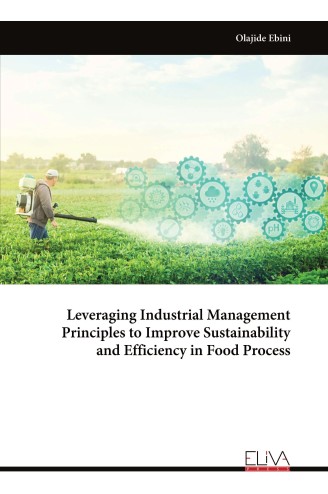
Leveraging Industrial Management Principles to Improve Sustainability and Efficiency in Food Process
$ 42.5
Description
Leave review
Description
This book delves into the application of industrial management principles to address critical challenges in the global food processing industry, such as resource depletion, environmental impacts, and inefficiencies in production. The study explores how Lean Manufacturing, Six Sigma, Total Quality Management (TQM), and Industry 4.0 technologies can revolutionize sustainability and operational efficiency in food processing.
Lean Manufacturing principles focus on waste reduction and process optimization, employing tools like 5S, Value Stream Mapping, and Just-in-Time (JIT) production to streamline operations. Six Sigma enhances quality and consistency through data-driven methods, while TQM promotes continuous improvement and fosters a culture of excellence across all organizational levels.
The integration of Industry 4.0 technologies—such as Artificial Intelligence, the Internet of Things (IoT), Big Data Analytics, and Cyber-Physical Systems—enables real-time monitoring, predictive maintenance, and greater process control. These technologies reduce waste, optimize energy usage, and enhance product quality, paving the way for a more sustainable and resilient food supply chain.
This book highlights the potential of combining these methodologies to create holistic solutions for the industry. For instance, Lean Six Sigma blends the strengths of both approaches, improving efficiency and reducing environmental impacts. Similarly, the synergy between TQM and Industry 4.0 technologies facilitates rapid, data-driven decision-making while ensuring compliance with stringent food safety standards.
Despite the benefits, the book acknowledges the challenges in adopting these principles, including high implementation costs, workforce training requirements, and technological integration hurdles. Recommendations include developing clear implementation strategies, enhancing employee training, and fostering a culture of change to overcome these barriers. By adopting these principles, the food processing industry can achieve sustainable growth, reduce its environmental footprint, and ensure long-term food security while maintaining profitability and high product standards.



